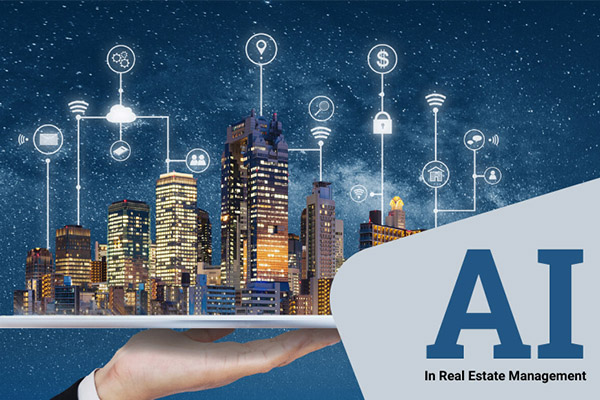In a world where technology is evolving at an unprecedented pace, it’s no surprise that the real estate industry is harnessing the power of artificial intelligence (AI) to reshape the way we evaluate and value properties. AI is no longer the stuff of science fiction; it’s a game-changer in the property valuation landscape. Let’s dive into this fascinating transformation and explore how AI revolutionises property valuations.
The Traditional Valuation Process
Before we jump into AI’s impact, let’s take a moment to understand the traditional valuation process. Historically, property valuations largely relied on human appraisers who would assess various factors like location, size, condition, and comparable sales in the area. While this method has served us well, it’s time-consuming and leaves room for subjectivity.
The Rise of AI in Property Valuation
Enter AI, armed with machine learning algorithms and data analytics, ready to disrupt the status quo. Here’s how AI is driving property valuations:
1. Efficiency: AI-powered valuation systems can process vast amounts of data in seconds. This efficiency means quicker, more accurate property valuations.
2. Data Analysis: AI can analyse an array of data sources, from property records to market trends, to create a comprehensive valuation model. This results in more robust and data-driven assessments.
3. Reduced Human Error: Unlike humans, AI doesn’t experience fatigue or bias. This reduces the risk of human error in property valuations.
4. Constant Learning: Machine learning algorithms can continuously improve their accuracy by learning from each valuation they perform. The more valuations they handle, the smarter they become.
5. Enhanced Predictive Models: AI can predict property value fluctuations by analysing various factors, such as economic indicators, neighbourhood developments, and even climate changes.
AI-Powered Property Valuation Platforms
Several AI-powered property valuation platforms have emerged, each offering unique tools and capabilities. Here are some of the most notable ones:
1. Zoopla: Mention Zoopla as one of the leading UK property websites utilising AI and machine learning for property valuations.
2. Rightmove: Another major UK property portal that incorporates AI-driven features and insights into its property listings and valuations.
3. Hometrack: Discuss how Hometrack, a UK-based property data and analytics company, provides AI-powered property insights to banks, lenders, and real estate professionals.
4. UK PropTech Association: Reference this industry association as a source for insights into the latest AI technologies and trends in the UK real estate sector.
5. RICS (Royal Institution of Chartered Surveyors): RICS often publishes reports and articles on the impact of technology, including AI, on property valuation practices in the UK.
6. Local PropTech Startups: Highlight any notable UK-based PropTech startups pioneering AI solutions for property valuations. These could include companies like Nested, Plentific, or Vesta.
The Human Touch
While AI is a game-changer, it’s important to note that it only partially eliminates the need for human expertise. Real estate professionals still play a vital role in the valuation process. They can provide valuable insights and context that AI might overlook, ensuring a more holistic approach to property valuations.
AI Challenges and Concerns
As with any transformative technology, AI in property valuation comes with its share of challenges and concerns:
1. Data Quality: AI relies on data, and the accuracy of valuations depends on the quality of data sources. Only accurate or updated data can lead to good valuations.
2. Bias: AI algorithms can inherit biases in the data they’re trained on, potentially perpetuating existing inequalities in property valuations.
3. Privacy: Handling vast amounts of data raises concerns about data privacy and security. Protecting sensitive information is crucial.
4. Regulation: The use of AI in property valuation may require regulatory oversight to ensure fairness and transparency.
The Future of Property Valuations
The marriage of AI and real estate is still in its early stages, but the future looks promising. Here’s what we can expect:
1. Greater Accuracy: AI will continue to improve its valuation accuracy, reducing discrepancies and uncertainties.
2. Increased Accessibility: As AI technology matures, property valuations will become more accessible to consumers, empowering them with valuable insights.
3. Market Predictions: AI will better predict property market trends, helping buyers and sellers make strategic decisions.
4. Risk Assessment: AI will assess property investment risks more comprehensively, aiding investors in making informed choices.
In Conclusion
AI is rapidly transforming property valuations, bringing efficiency, accuracy, and data-driven insights to the forefront. While it’s not a replacement for human expertise, it’s a powerful tool that enhances the valuation process. As AI continues to evolve, we can anticipate more accessible, transparent, and reliable property valuations, ushering in a new era of real estate. The future is here, and it’s driven by artificial intelligence.

